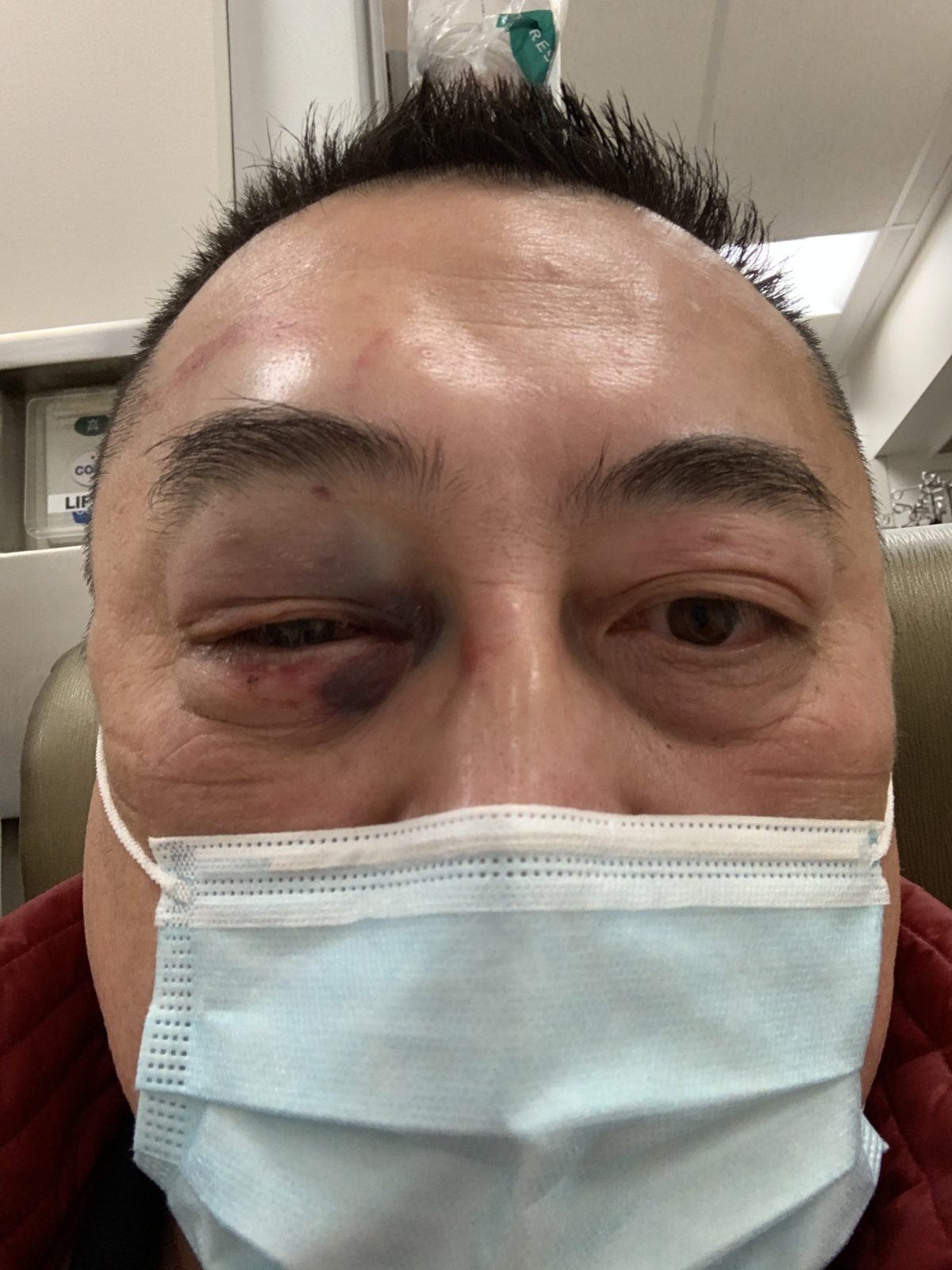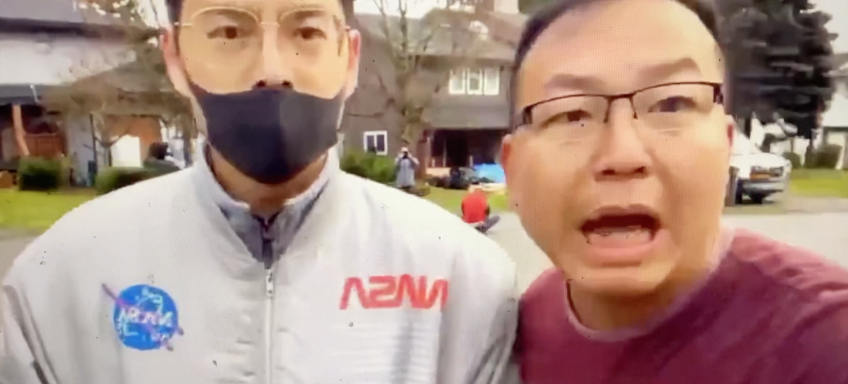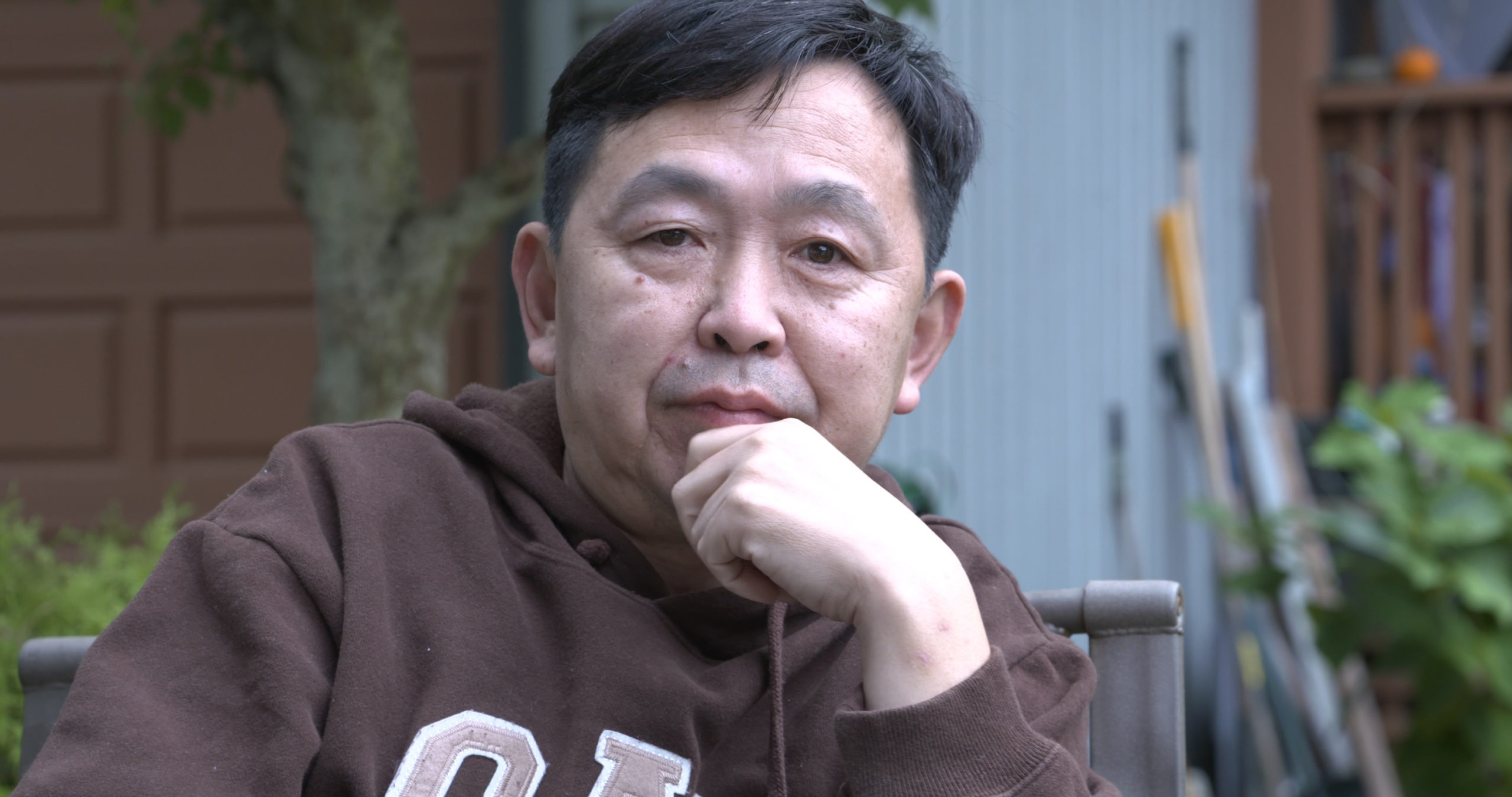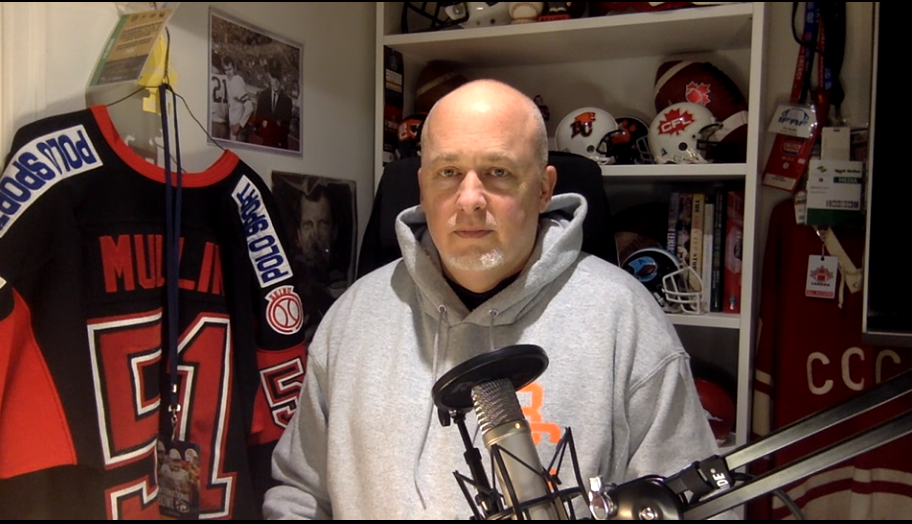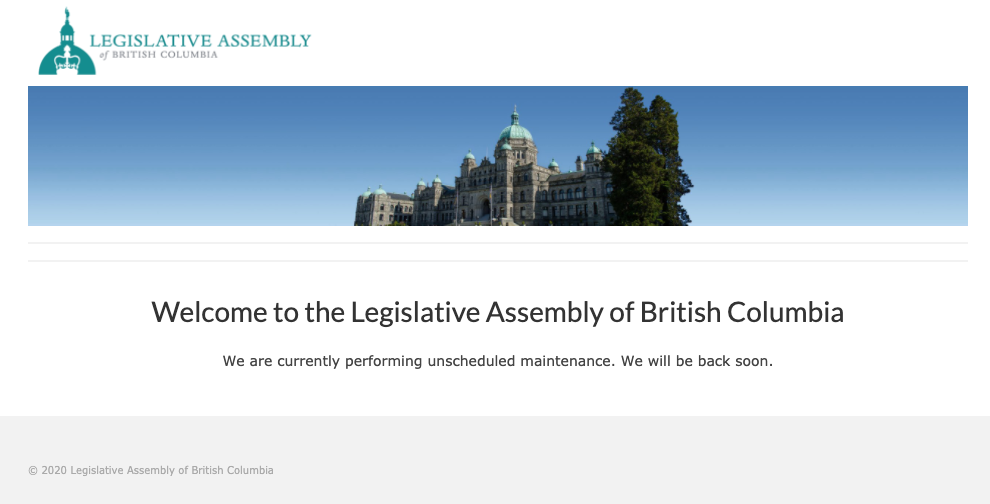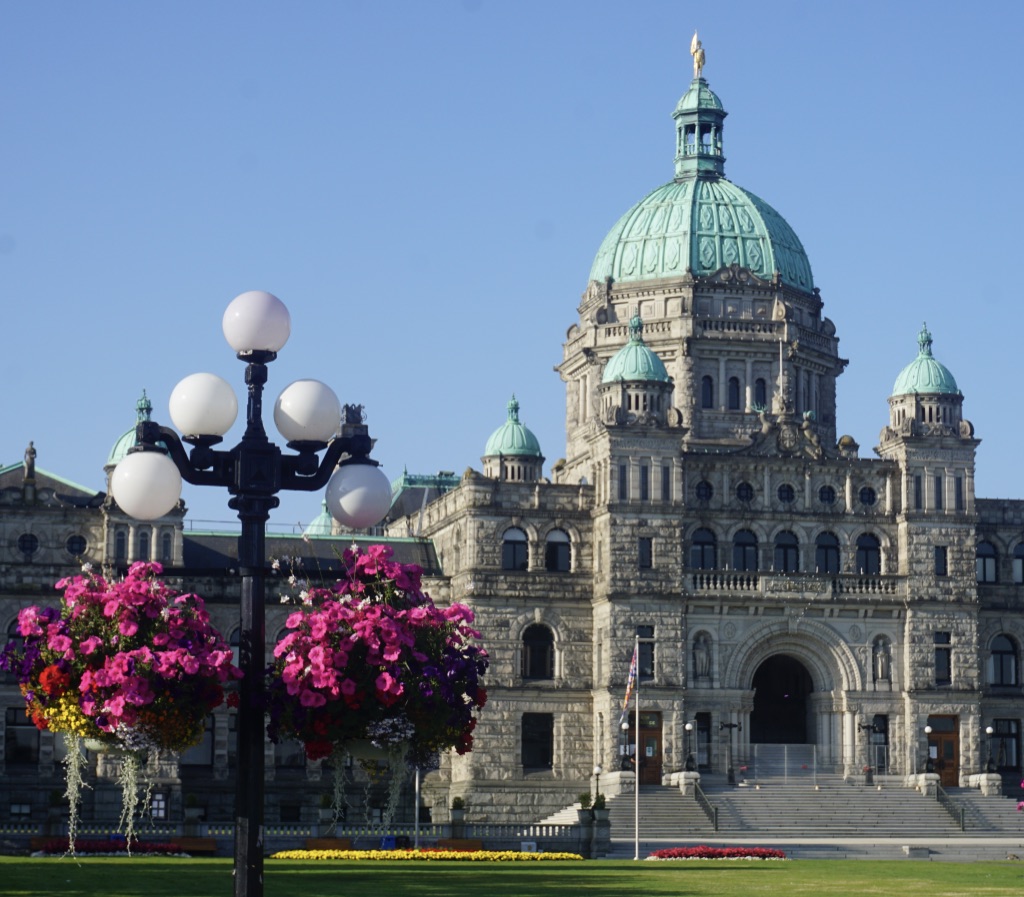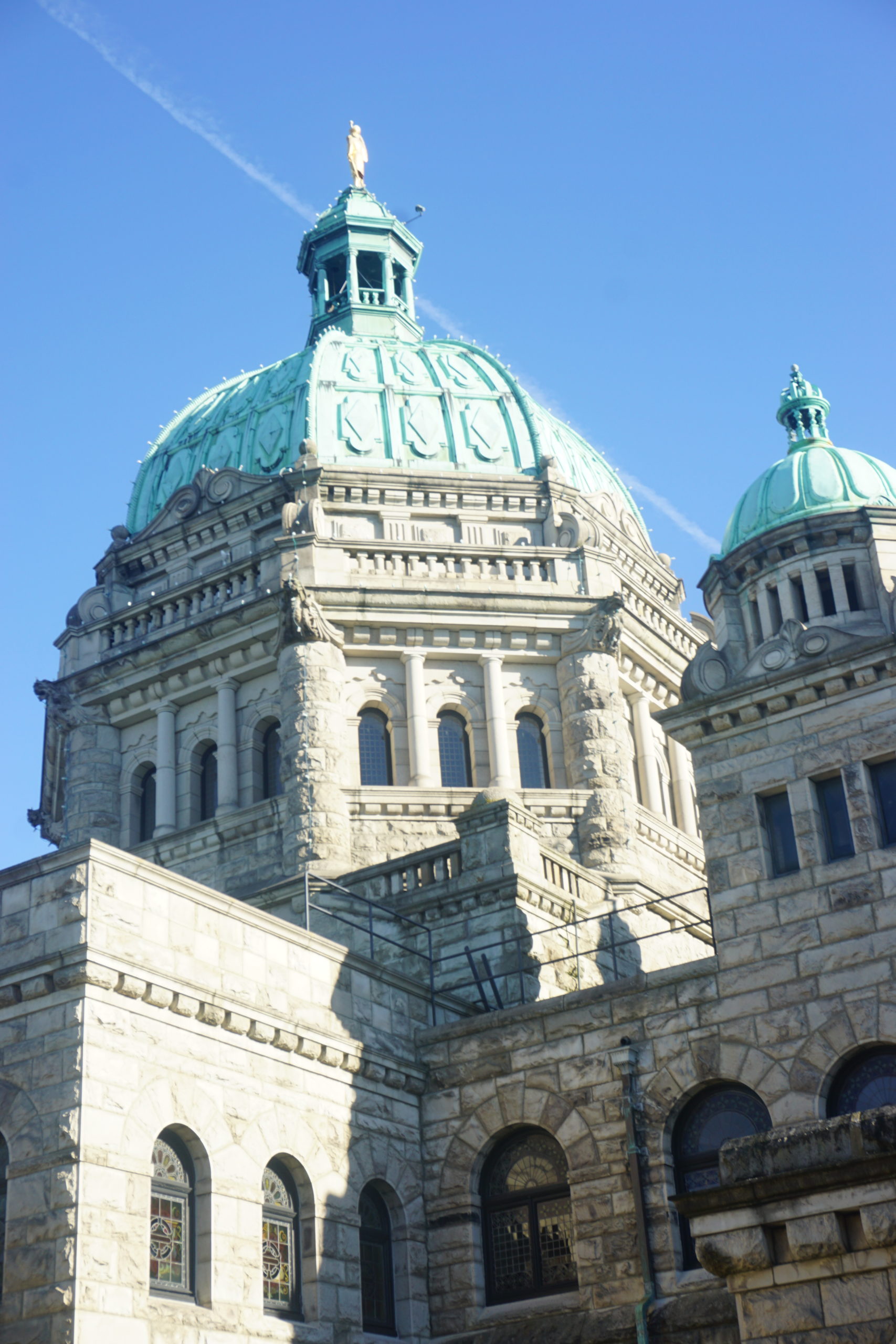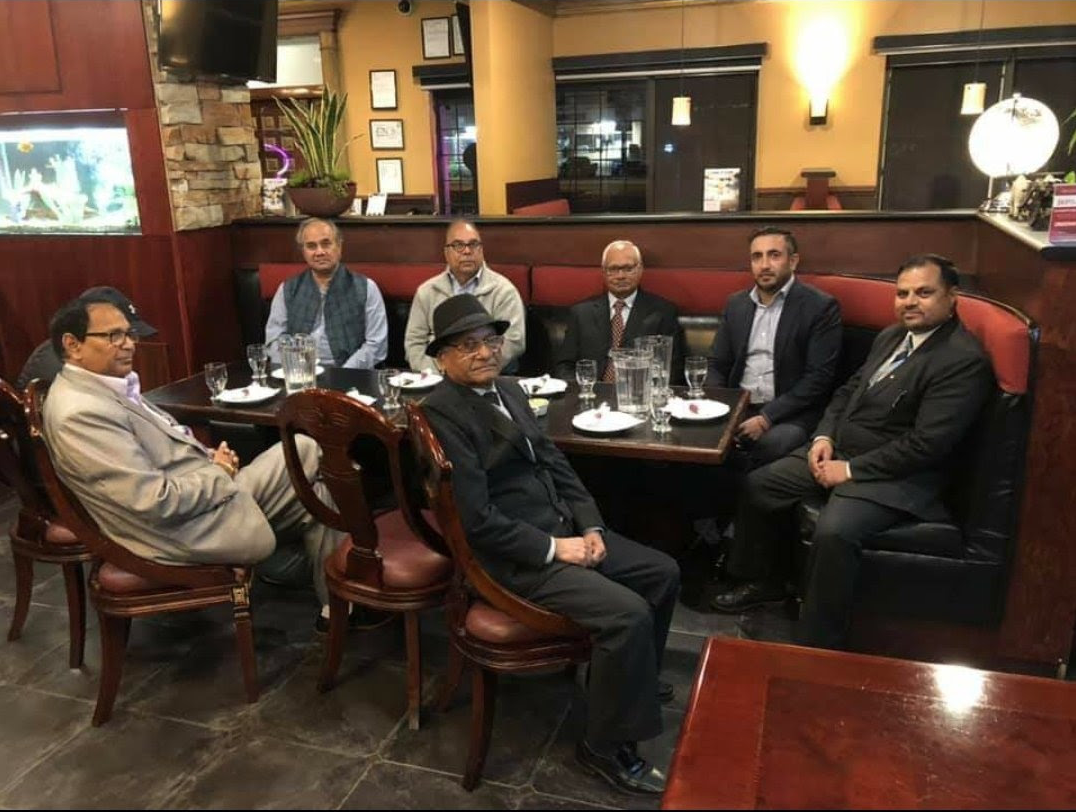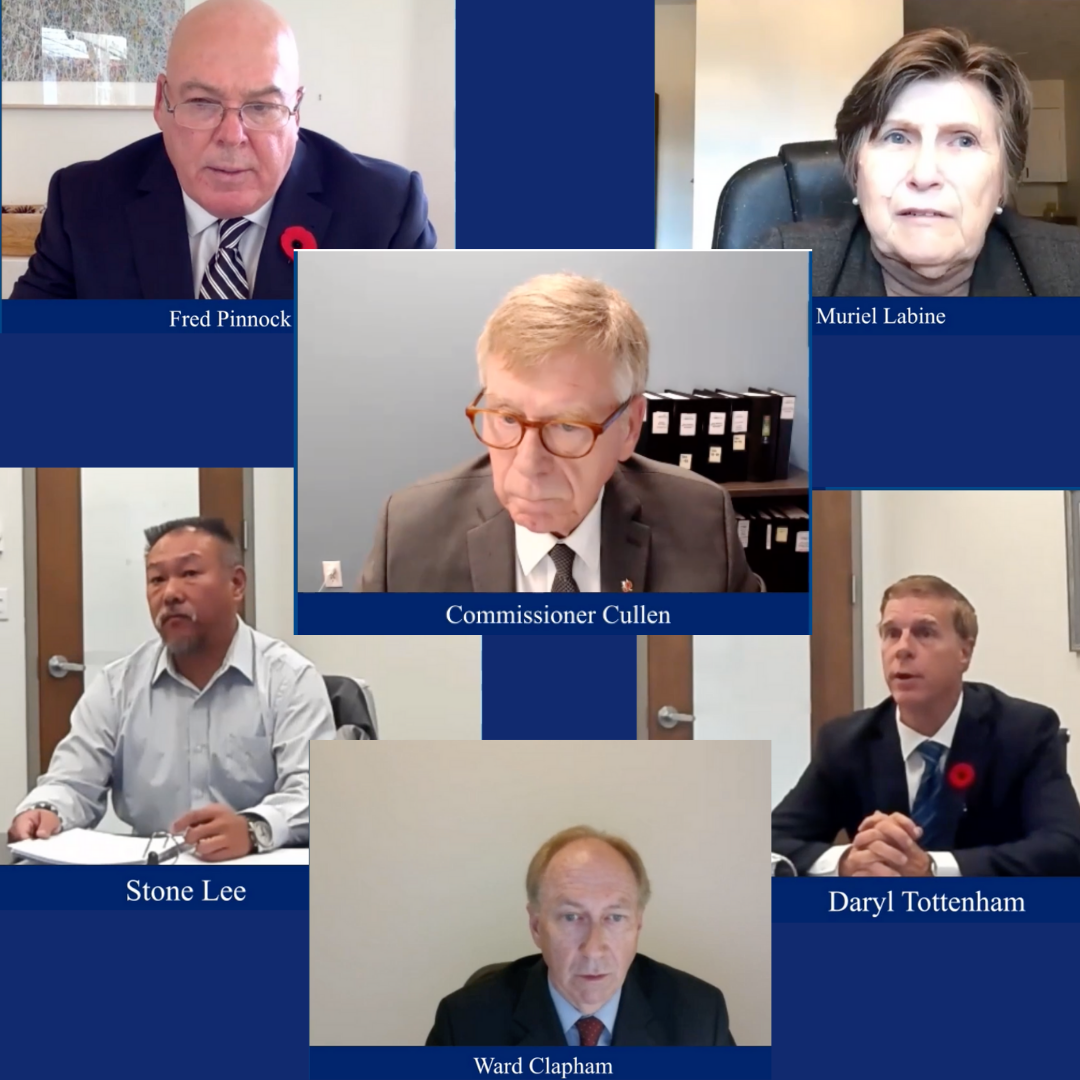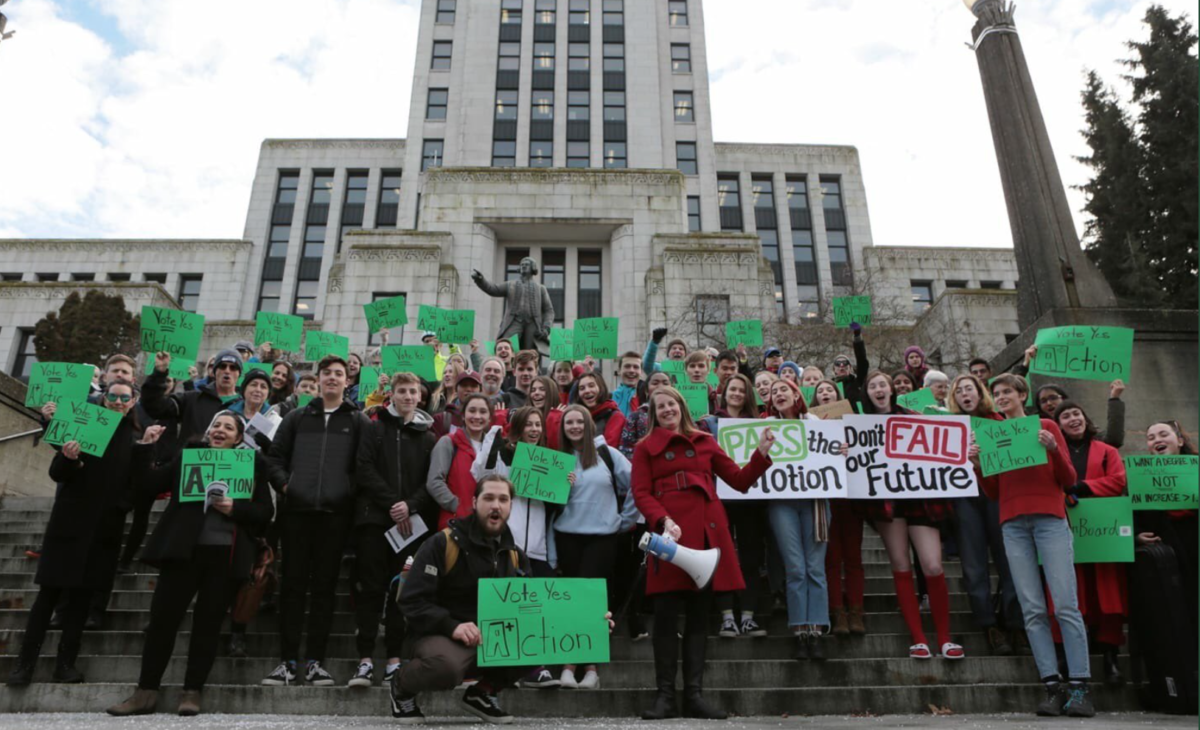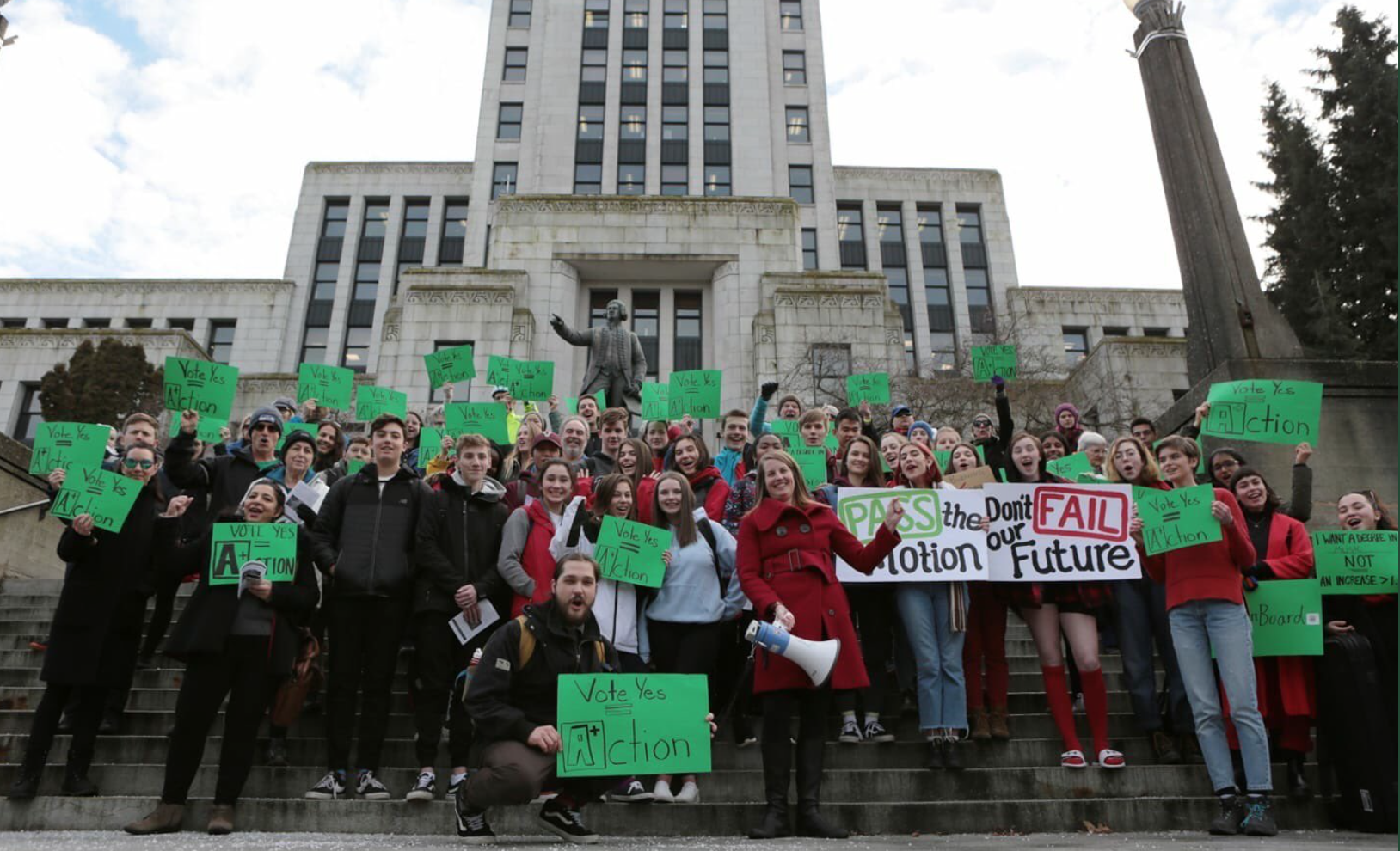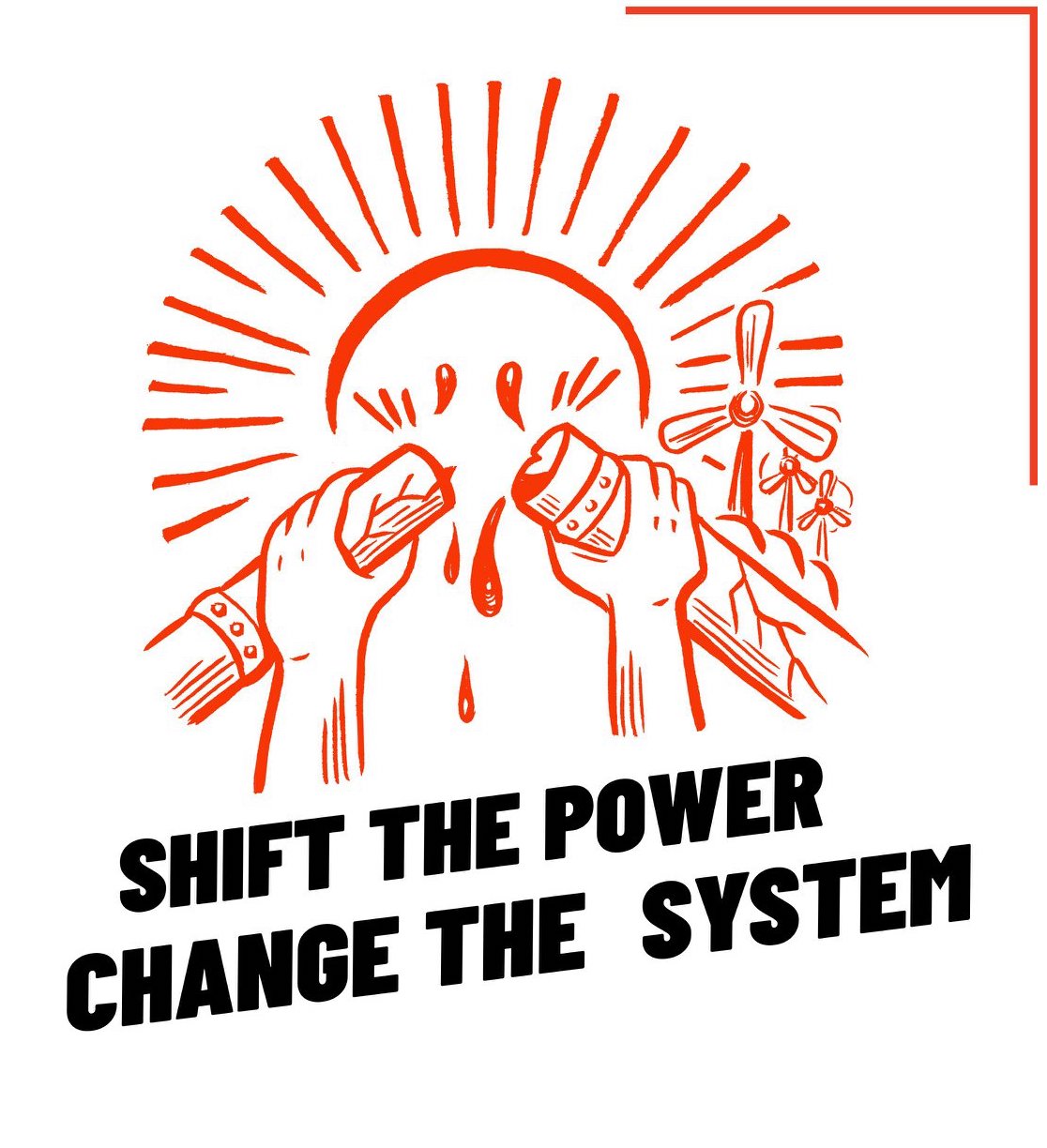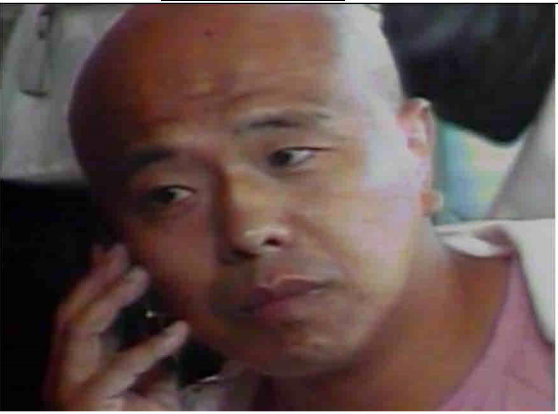Surrey assault victim: “They attack the real anti-CCP, actual pro-democratic activists”
Bob Mackin (Updated Feb. 3, 2021)
The victim of a violent daytime assault in a Surrey cul-de-sac said he needs facial and dental surgery.
Louis Huang, co-founder of the Vancouver Chinese Human Rights Watch Group, was punched and kicked while he was down Nov. 25 by two men who have been involved in ongoing protests on the street since September.
The protests are linked to an anti-Chinese government campaign launched by a former aide to Donald Trump and a Chinese real estate tycoon living in exile in New York. The attack on Huang was captured on surveillance video. Huang was taken to hospital for his injuries, a broken bone under his right eye and a broken tooth.
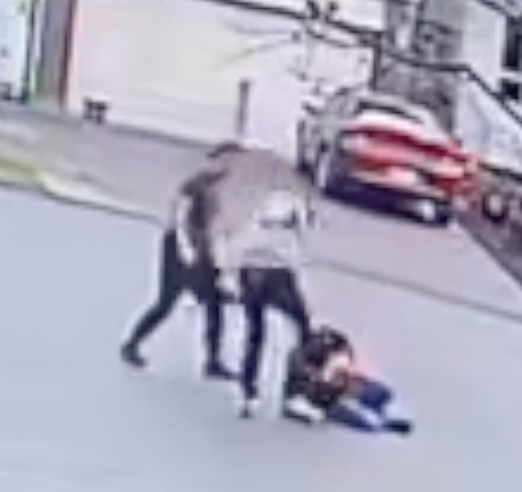
Two men arrested after a violent assault Nov. 25 in Surrey.
Surrey RCMP officers were dispatched around 10:45 a.m. Nov. 25 to the 9700-block of 149 St. Officers arrested the two men. A report on the incident is pending for potential charges by Crown counsel, Cpl. Elenore Sturko told theBreaker.news.
“To see them run over and actually attack my neighbour’s friend, punch him and kick him down on the ground, that’s just scary,” resident Bob Petersen told CTV News Vancouver’s Jon Woodward.
Petersen said the protests have crossed the line into harassment and suggested it is time for Surrey city hall to seek a court order.
The two men were released with orders to stay away from the cul-de-sac, but several of their comrades appeared Nov. 26 on the street wearing box-like plastic coveralls. Mu Bai, 44, and Shiliang Yin, 31, were charged Jan. 29, 2021 with assault causing bodily harm. Bai’s next court date is Feb. 22, while Yin’s is Feb. 26, both in Surrey Provincial Court.
A group that purports to oppose the Chinese Communist Party has protested outside the house of journalist Bingchen “Benson” Gao since September. Gao has denied their claims that he is a spy for the Chinese government.
Huang said he was in the area because Gao asked him to go with him to Surrey city hall and Surrey RCMP headquarters on Nov. 25 “to ask them to pay more attention to the ongoing harassment.”
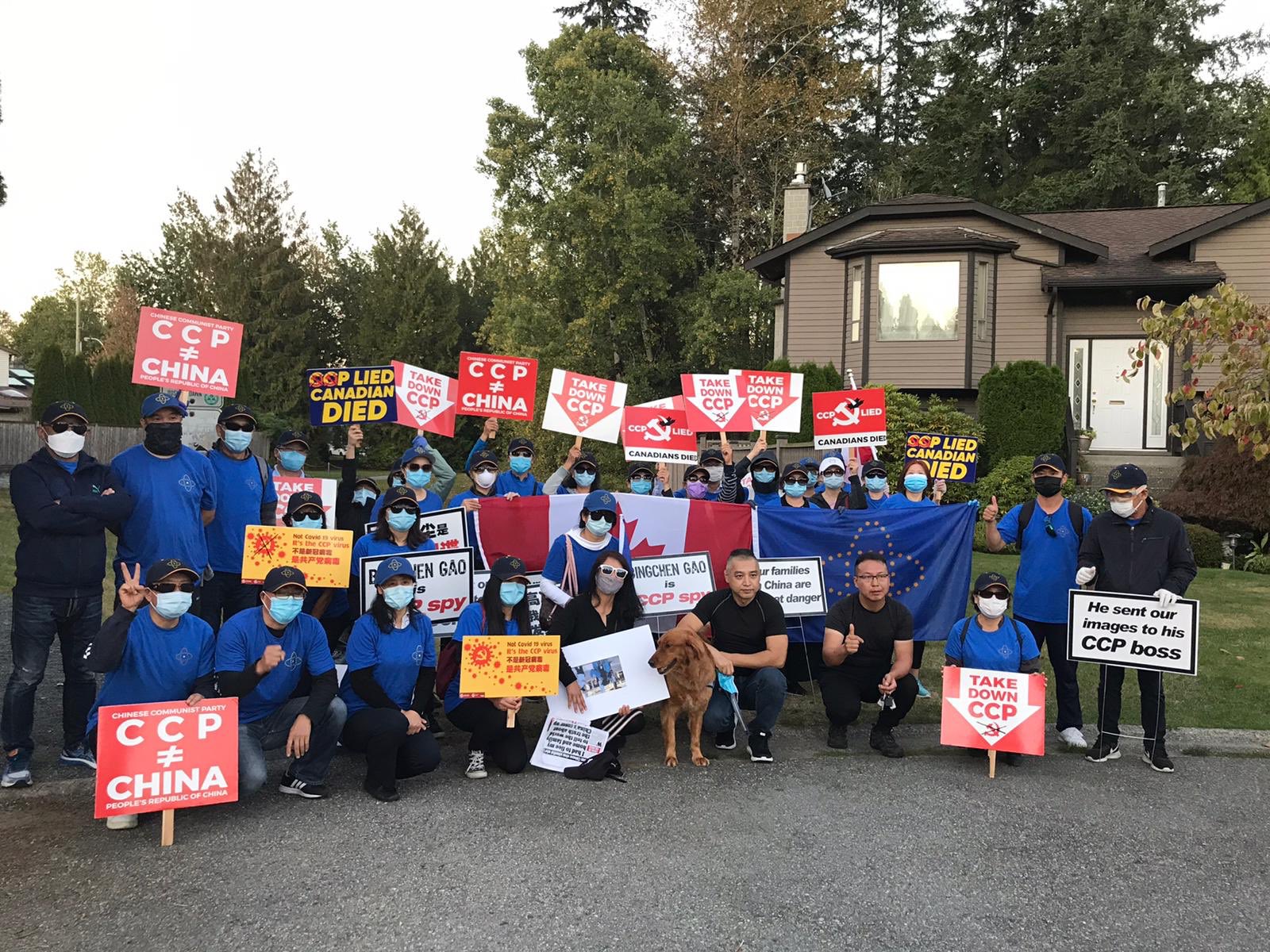
October group photo of protesters who targeted Bingchen Gao’s Surrey neighbourhood (GNews)
“These two guys came toward me, stood very close. I suddenly realized they had intention to attack me, it was too late,” Huang said.
Huang said he was smoking a cigarette at the time and the two men accused him of blowing smoke at them.
“They pretend to be anti-CCP, but they attack the real anti-CCP, actual pro-democratic activists around the world, so we have to oppose them,” Huang said.
The protesters are part of the New Federal State of China campaign created by Steve Bannon and Guo Wengui, who are also involved in the media startups GNews and GTV. Associates have staged protests against critics in other cities around North America. Gao has been critical of Guo, who is wanted for corruption in China. Guo was the developer of the dragon-shaped Pangu Plaza complex that opened for the Beijing 2008 Olympics.
B.C. Securities Commission media relations and public affairs advisor Elise Palmer said GTV Media Group Inc., a subsidiary of Saraca Media Group Inc., was added to the provincial investment regulator’s caution list in May 2020, “warning British Columbians that neither GTV nor Saraca Media Group Inc. are registered to sell securities in B.C. and they have not filed a prospectus with the BCSC. B.C. residents are urged to exercise caution when dealing with companies that are not registered to issue shares.”
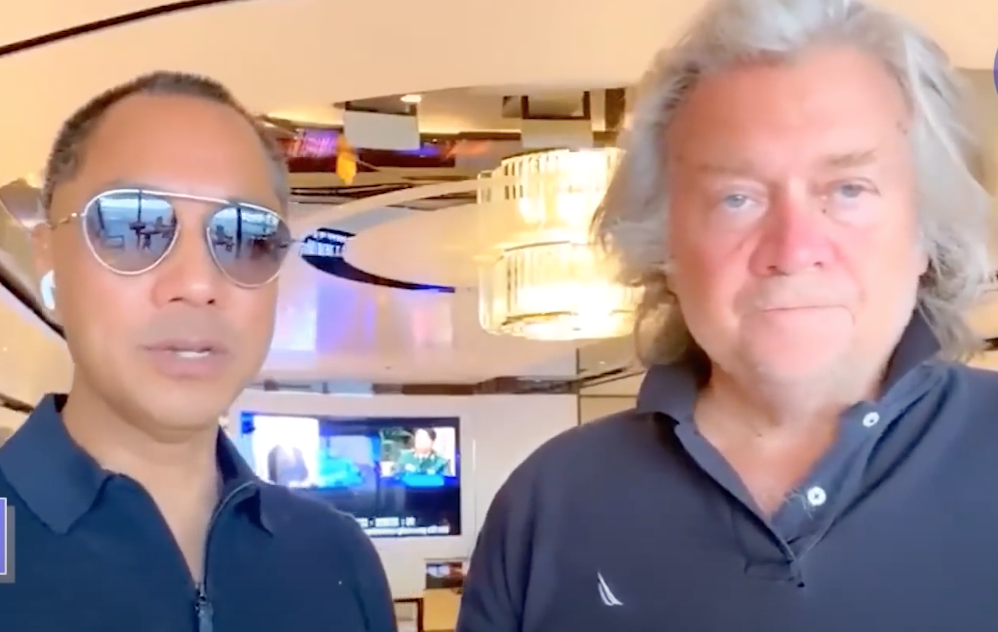
Guo Wengui (left) and Steve Bannon (GTV/YouTube)
Palmer declined to say whether GTV is under investigation.
“To protect the integrity of the investigative process, the BCSC does not confirm or deny the existence of investigations, and does not provide details of investigations,” Palmer said.
The GNews website shows a group waving the blue and yellow New Federal State of China flags during an Oct. 6 protest outside the BCSC in downtown Vancouver. They also waved professionally printed signs reading “GTV Rocks”, “SC Show Me The Proof,” and “Take Down CCP.”
The next day, GNews published a story boasting of the protests against Gao, with a group photo of more than 30 people, including one of Huang’s assailants.
“For the past 20 days the brothers-in-arms have undertaken a punitive action against Huang Hebian in Vancouver,” the Oct. 7 report states.
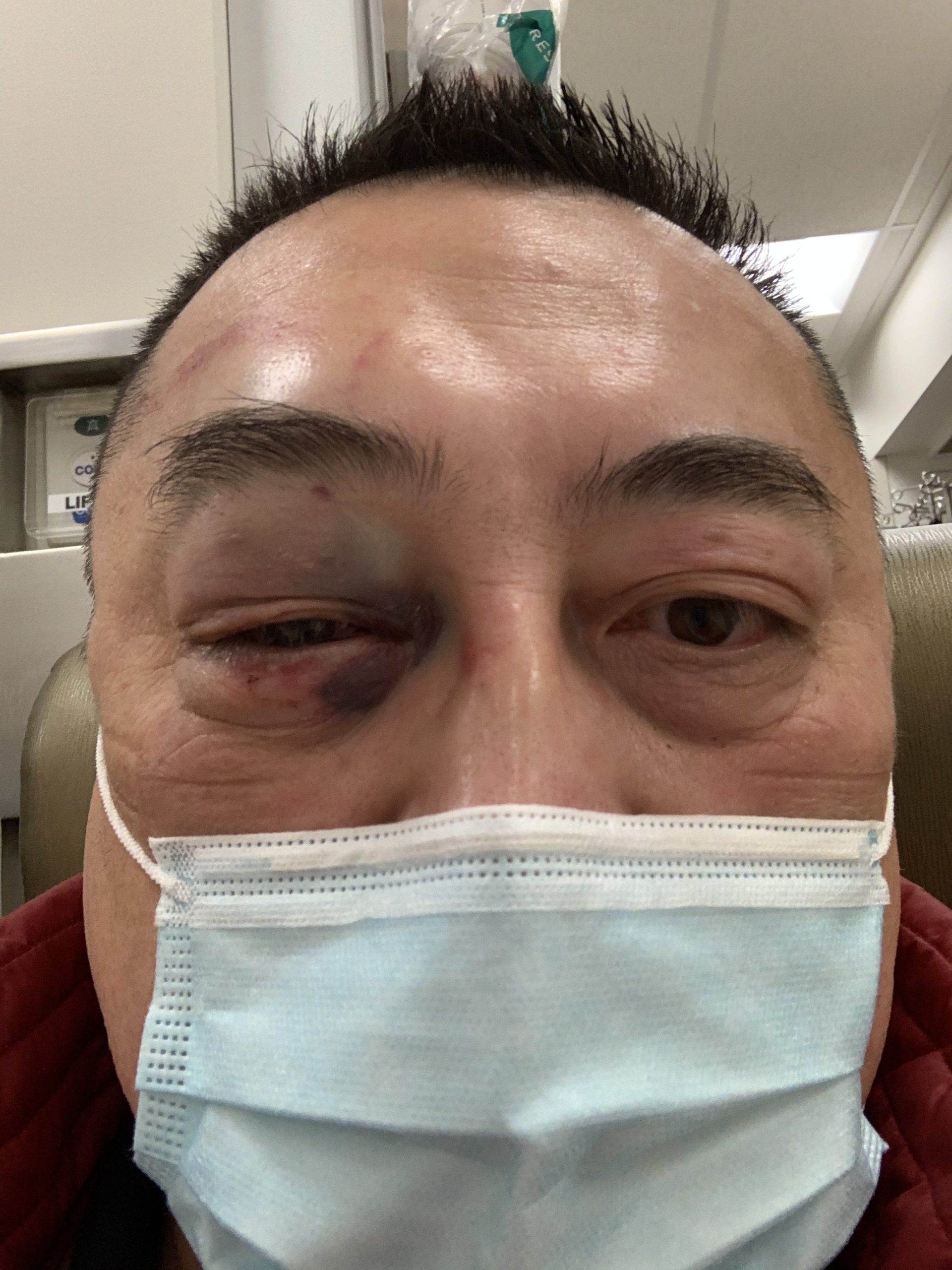
Louis Huang
Guo, who is also known as Miles Guo and Miles Kwork, is seen in a video circulating on social media on Nov. 24 saying that if Gao removes all videos from his channel and apologizes, “our comrades will stop their actions against him.”
“Although we haven’t shut the protest down, there are rights to protest, there are rights to conduct peaceful protests,” said Surrey RCMP Cpl. Elenore Sturko. “However, when see like [Wednesday], when things cross over into the realm of criminality, there will be action taken.”
theBreaker.news sought comment from Bannon and Guo, but did not receive a reply.
Bannon was arrested on Guo’s yacht, the Lady May, on Aug. 20. He is denying charges that he defrauded donors to a campaign aimed at building part of Trump’s controversial wall on the U.S.-Mexico border.
Support theBreaker.news for as low as $2 a month on Patreon. Find out how. Click here.
Bob Mackin (Updated Feb. 3, 2021) The victim






